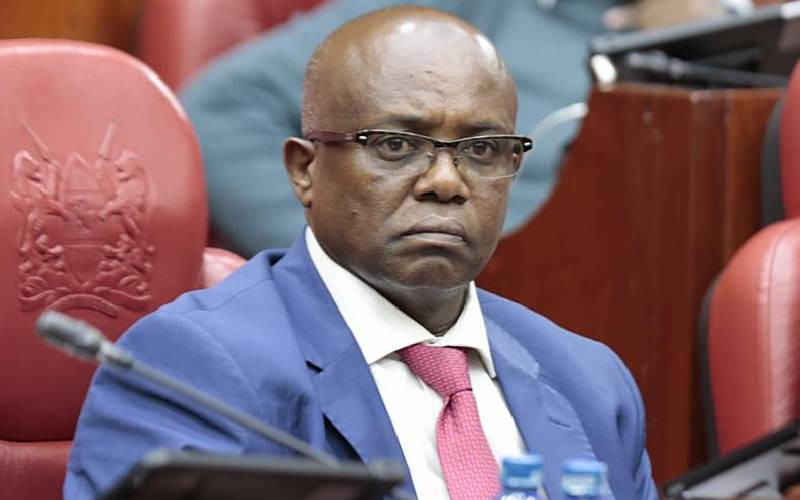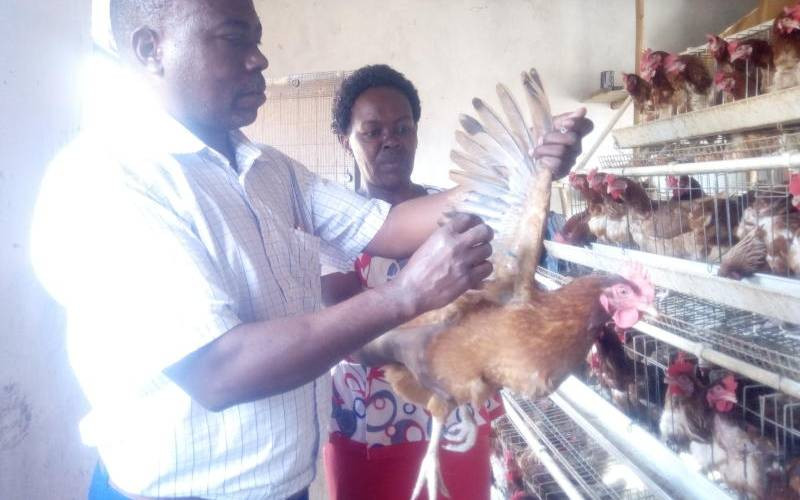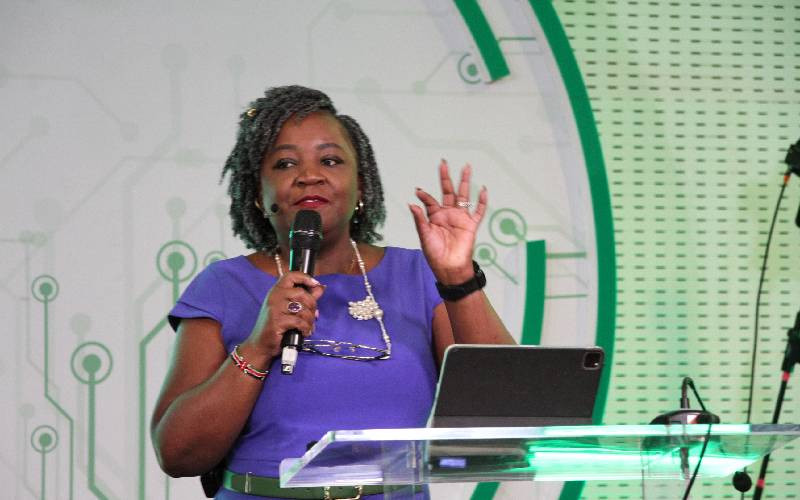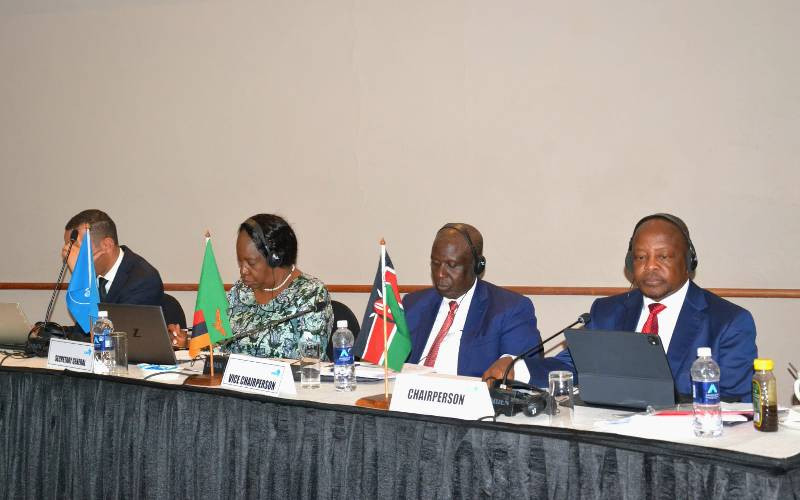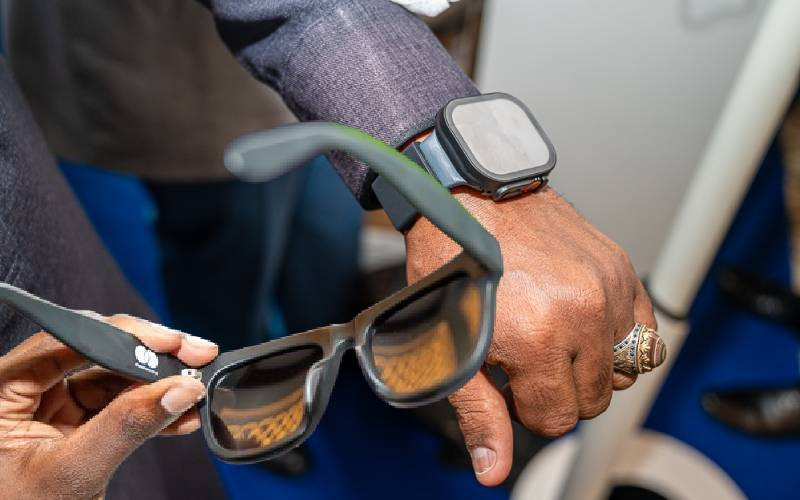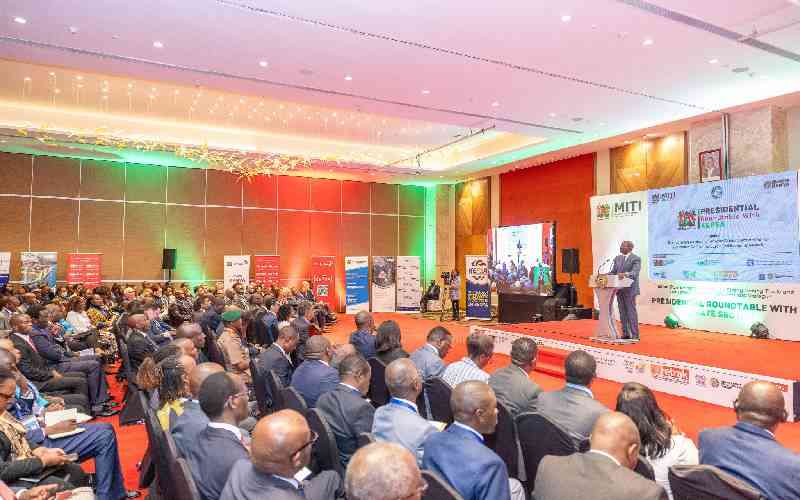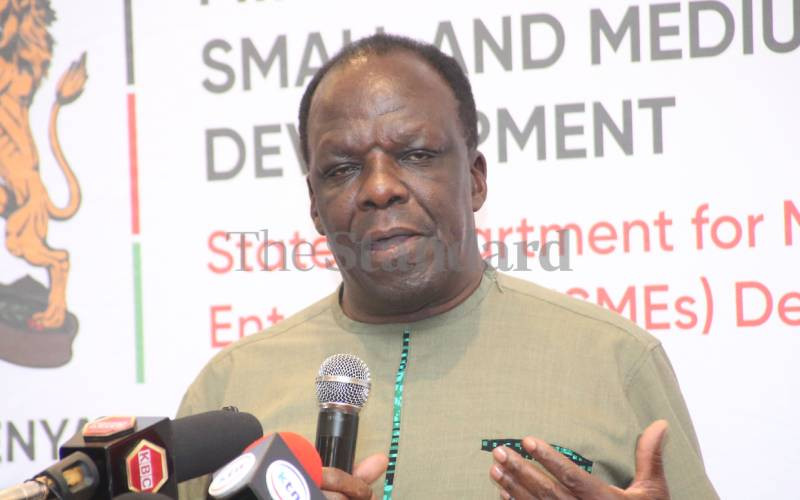
The government will focus on four key areas to spur the growth of Micro and Medium Enterprises(MSMEs) to create jobs.
The four areas are access to finance, market, digital transformation and building resilience against climate change impacts.
This is according to Cabinet Secretary for Cooperatives and MSMEs Wycliffe Oparanya.
“Access to finance for MSMEs is a responsibility of the government because this particular sector has not been attractive to commercial banks because of the interest rates. You subject this sector to commercial banks then you will be saying this sector will collapse,” said Oparanya.
The CS said this during a breakfast event to unveil the National Organising Committee (NOC) of the 25th EAC MSME Trade Fair that is scheduled to take place between November 1 to 10 in Nairobi.
Oparanya said his ministry will intervene to ensure there is more allocation of resources through the various agencies in the sector and mitigation by the government to ensure that the interest rates are reasonable to this particular sector.
The CS said he has presented a paper to the Cabinet on MSMEs and the emphasis was that it is not just brick and mortar that is important but also a need to focus on MSMEs.
“We can do brick and mortar, build roads, have the best infrastructure but if we have no focus on MSMEs to create economic activity, jobs for our people, then the street demonstrations will continue on the best roads that we will have built so this is a critical sector,” he said.
The Kenya Kwanza regime has taken MSMEs as one of the five economic pillars of the Bottom-Up Economic Transformation Agenda(BETA) that can transform the country economically.
On market access, Oparanya said he is hopeful that despite some of the EAC member states putting up non-tariff barriers, he is hopeful that the government will engage them so that some of those barriers are removed.
“As a ministry, we are going to carry out a survey this year since the last survey was done in 2016 to know where there is MSMEs concentration and once we know where they are, then that support that I have mentioned through these thematic areas will be possible,” he said.
The CS said the ministry has also come up with MSME Connect, an initiative by the government to make sure that they put together key stakeholders in the industry to share some of the challenges, successes, networking and so that each key player knows what is where to avoid even duplication.
MSMEs Principal Secretary Susan Mang’eni said Kenya will be hosting the 25-year-old trade fair for the seventh time since December 2018 in Eldoret and majority of the attendees will be young people.
“This is clearly a Gen Z trade fair and we therefore have to do it differently, taking into consideration the feelings, opportunities, challenges and the expectation of the most vibrant segment of our population today, not just in Kenya but also in the larger continent of Africa,” said Mang'éni.
She said the expectations are high and the country is going to set standards for the EAC member states in hosting the fair.
Stay informed. Subscribe to our newsletter
“We are not just doing it the way it's been done, but we are doing it to meet the context and the space of our young people who will think that they can take advantage of this sector, create their own jobs, and also help governments in the region to create jobs for the rest of the young generation,” she said.
The PS said among the discussions during the fair will be how to take advantage of the bigger African Continental Free Trade Area (AfCFTA) and not just the EAC market.
East Africa Community (EAC) Trade Fair Regional Project Manager Richard Muteti said the launch of the committee by the host country allows other EAC member states to also launch their committees too.
“The trade fair used to be called EAC Jua Kali Nguvu Kazi because it was meant for the ordinary persons. The initiative was first influenced by Kenya by the late President Daniel Moi in accompaniment of presidents of Tanzania and Uganda and the first was done in Arusha in 1999 during the commemoration of the signing of the EAC Treaty,” he said.
